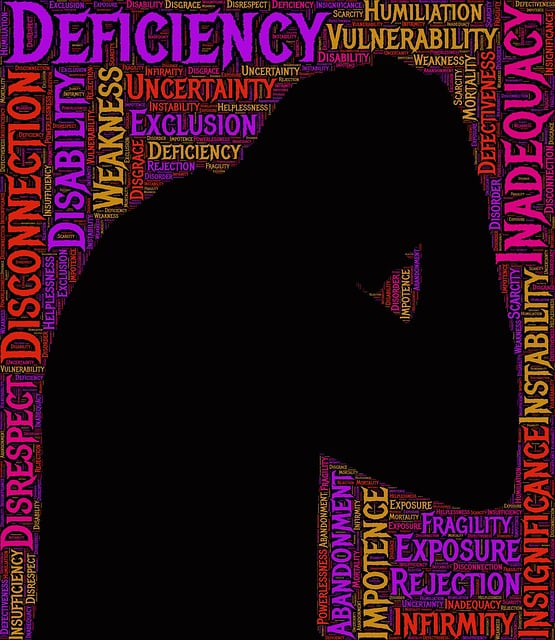Centennial Grief Counseling Therapy professionals face complex challenges in helping clients navigate grief and collective trauma. Balancing boundaries, cultivating rapport, implementing burnout prevention strategies, and prioritizing self-care are crucial for both therapist well-being and effective client support. Early burnout recognition, crisis intervention guidance, supervision, professional development, and peer support networks enhance resilience against workplace pressures. Additionally, navigating ethical complexities while maintaining confidentiality requires careful consideration of emotional regulation and legal obligations. Cultivating empowerment, mindfulness, exercise, social connections, open communication, and work-life balance mitigate burnout, sustaining career satisfaction in this demanding field.
In the heart of therapeutic practice, mental health professionals navigate a unique landscape of risks that extend beyond physical safety. This article explores the multifaceted challenges they face, from understanding the distinct dangers inherent in their work—such as Centennial Grief Counseling Therapy—to managing client relationships and preventing burnout. We delve into ethical dilemmas, legal responsibilities, and powerful strategies for building resilience and maintaining career satisfaction.
- Understanding the Unique Risks in Mental Health Practice
- The Impact of Client Relationships on Professional Well-being
- Identifying and Managing Burnout in a Therapeutic Setting
- Navigating Ethical Dilemmas and Legal Responsibilities
- Strategies for Building Resilience and Sustaining Career Fulfillment
Understanding the Unique Risks in Mental Health Practice

In the realm of mental health practice, professionals encounter a unique set of risks that extend beyond physical dangers often associated with other healthcare professions. Centennial Grief Counseling Therapy, for instance, involves navigating deeply personal and emotional territories, which can be both rewarding and challenging. Therapists must be prepared to handle complex grief reactions, including those stemming from collective trauma, as seen in recent historical events. This specialized field demands a delicate balance between professional boundaries and building therapeutic rapport, ensuring client safety while fostering trust.
Social Skills Training, Mental Health Policy Analysis and Advocacy, and Burnout Prevention are integral components of mitigating these risks. Effective advocacy for mental health policy reforms can enhance service accessibility and improve patient outcomes. Burnout prevention strategies, such as self-care practices and supervision, are crucial to sustaining professionals’ well-being. Moreover, social skills training equips therapists with the interpersonal tools necessary to connect with diverse client populations, thereby fostering more inclusive and effective therapy sessions.
The Impact of Client Relationships on Professional Well-being

The dynamic nature of client relationships in mental health practices presents a unique set of challenges and benefits for professionals. As therapists cultivate deep connections with clients undergoing Centennial Grief Counseling Therapy, they may experience heightened emotional investment. This investment can foster a profound sense of satisfaction and purpose but also carries the risk of burnout if not managed effectively. The constant exposure to clients’ vulnerabilities and traumatic experiences can take a toll on therapists’ mental health, leading to increased stress levels and potential moral distress.
Professional well-being is closely intertwined with the quality of these relationships. Implementing Stress Reduction Methods, such as mindfulness practices and self-care routines, becomes essential for maintaining resilience. Additionally, building a strong support system among colleagues can offer a safe space for processing complex emotions. Encouraging clients to develop Coping Skills Development strategies can also indirectly benefit therapists by empowering individuals to manage their own emotional challenges more effectively.
Identifying and Managing Burnout in a Therapeutic Setting

In the demanding field of mental health counseling, burnout is a significant risk for professionals who navigate clients through profound emotional journeys. Centennial Grief Counseling Therapy emphasizes the importance of recognizing and addressing burnout early on to ensure the well-being of both therapists and their patients. Burnout can manifest as physical, emotional, and mental exhaustion, detachment from work, and feelings of ineffectiveness. Therapists often face complex cases, high caseloads, and intense emotional demands, which can lead to prolonged stress if not managed properly.
To mitigate burnout, mental wellness coaching programs play a crucial role in providing Crisis Intervention Guidance. These programs offer strategies for self-care, stress management, and boundary setting, enabling professionals to maintain resilience. By participating in regular supervision, professional development workshops focusing on Mental Wellness Coaching, and peer support networks, therapists can stay equipped to handle challenging situations effectively. This proactive approach not only benefits individual therapists but also enhances the quality of care they provide, ensuring that clients receive consistent and compassionate support throughout their therapeutic journeys.
Navigating Ethical Dilemmas and Legal Responsibilities

Mental health professionals, like those offering Centennial Grief Counseling Therapy, often find themselves navigating complex ethical dilemmas and legal responsibilities in their practice. These challenges can arise from a variety of situations, including confidential client information, conflicting loyalties, and difficult decisions regarding treatment plans. For instance, balancing client privacy with the need to report potential harm involves delicate consideration of both ethical principles and legal requirements.
Ethical practices demand professionals prioritize clients’ well-being while adhering to established standards of care. Legal responsibilities mandate compliance with regulations that protect both clients and practitioners. By integrating self-care routines for emotional regulation, mental health professionals can better manage these dilemmas. The development of a robust self-care routine, grounded in mind over matter principles, enables practitioners to maintain their own mental health, thereby enhancing their ability to support their clients’ journeys towards emotional healing.
Strategies for Building Resilience and Sustaining Career Fulfillment

Building resilience is an essential strategy for mental health professionals to navigate the challenges inherent in their work. This involves cultivating a strong sense of personal and professional empowerment, enabling them to bounce back from stressful situations and maintain a positive outlook. For Centennial Grief Counseling Therapy practitioners, integrating self-care practices is paramount. Regular engagement in activities that nurture physical, emotional, and mental well-being, such as mindfulness exercises, exercise, and quality social connections, can significantly enhance resilience.
Sustaining career fulfillment within the field of mental health requires a holistic approach. Professionals must prioritize open communication about their workload, seek support from colleagues and supervisors, and actively engage in professional development opportunities. By fostering a culture that values well-being and encourages healthy work-life balance, the risk of burnout is mitigated, ensuring practitioners can continue to provide quality care with sustained passion and commitment to their craft.
Mental health professionals, like those offering Centennial Grief Counseling Therapy, face unique challenges that can impact their well-being. By understanding these risks, prioritizing self-care, and implementing effective strategies for managing burnout and ethical dilemmas, therapists can build resilience and sustain career satisfaction. This holistic approach ensures they are equipped to provide the best possible care for their clients while nurturing their own mental health.














